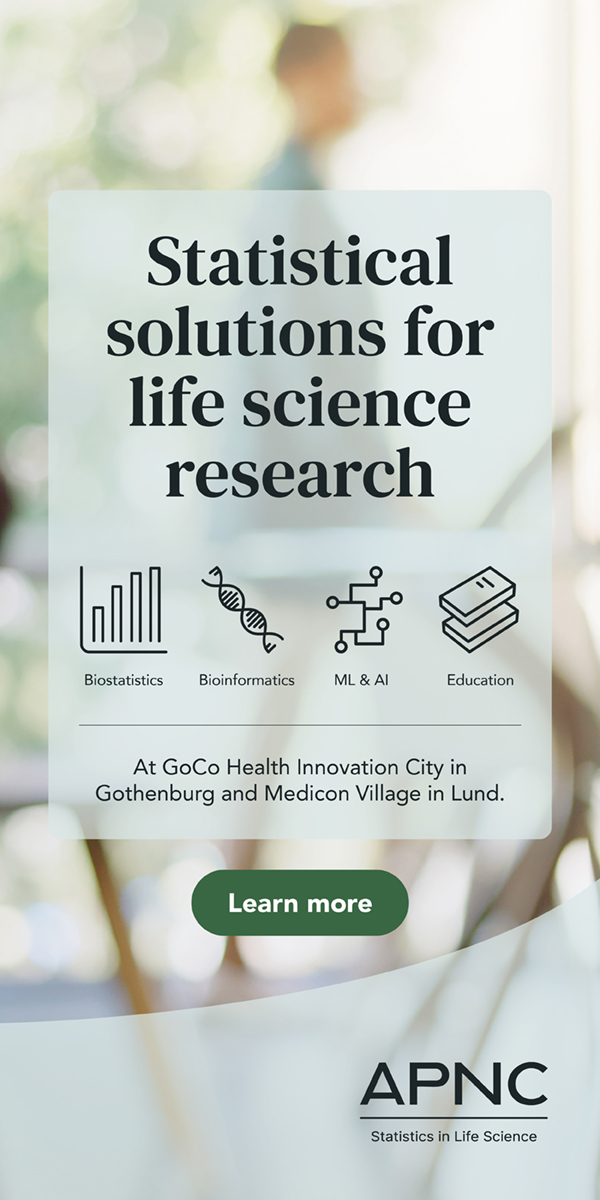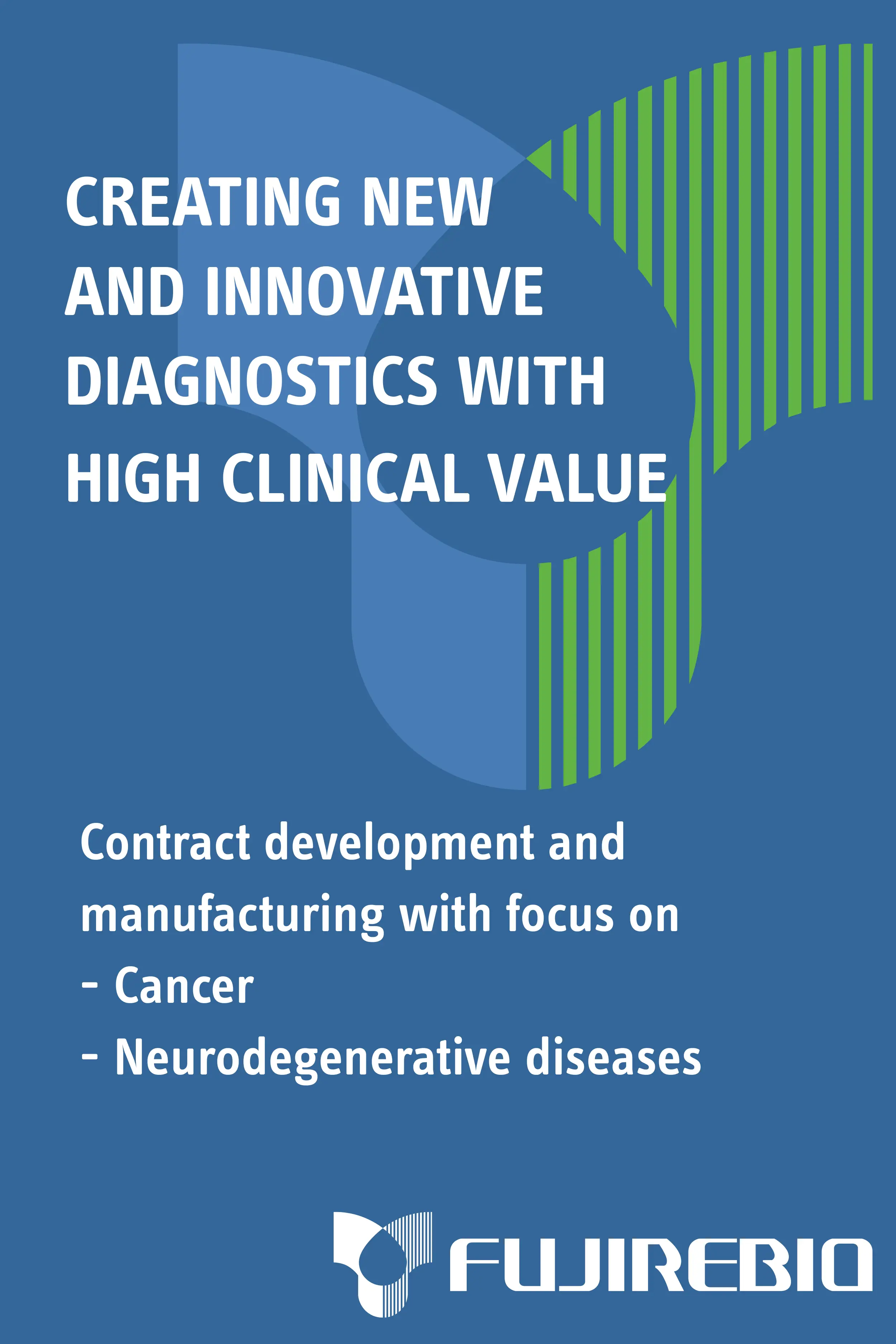Henrik Zetterberg: On New Advances in Alzheimer’s Research

Henrik Zetterberg has focused on developing biomarkers for Alzheimer’s disease and other neurodegenerative disorders, establishing himself as one of the foremost experts in the field. Under his leadership, researchers at the University of Gothenburg and University College London are working to develop objective and quantitative assays to measure the degree of brain pathology in Alzheimer’s and other dementias. Since 2019, Henrik and his colleagues in Gothenburg, Lund, London, and Wisconsin have been conducting numerous studies aimed at identifying biomarkers capable of detecting early Alzheimer’s disease through simple blood tests. In the summer of 2025, a historic milestone was reached when the biomarker test, validated by fellow researchers and diagnostic companies worldwide, was approved for clinical use within the Swedish healthcare system, starting at the Neurochemical Laboratory at Sahlgrenska University Hospital, Mölndal.
– “It is both significant and exciting that, after years of research studies where every possible angle has been examined, we can now take this forward to an actual test to be implemented in clinical practice at primary care centers and hospitals,” Henrik says.
– “In Alzheimer’s disease, the tau protein present in neurons becomes abnormally phosphorylated, and our test measures precisely this protein in a standard blood sample.”
In research studies, Henrik and his colleagues have demonstrated that elevated levels of P-tau217 in cerebrospinal fluid and blood, where tau is phosphorylated at amino acid position 217, serve as a biomarker for Alzheimer’s disease diagnosis.
– “By establishing that elevated P-tau217 levels are specific for Alzheimer’s disease, and not for other neurodegenerative disorders, diagnostic accuracy improves. We already know that plasma neurofilament light protein (NfL) indicates neurodegeneration in general, that progranulin plays a crucial role in frontotemporal dementia, and that plasma glial fibrillary acidic protein (GFAP) is a marker for astrocytes, tests that are now also available in clinical practice to aid in identifying other brain diseases.”
Through his long-standing commitment and impactful research on Alzheimer’s disease, Henrik has received repeated recognition nationally and internationally. At a ceremony in Stockholm in September 2024, attended by many of the world’s most prominent Alzheimer’s researchers, Henrik was awarded the prestigious Goodes Prize, often referred to as the “Nobel Prize of Alzheimer’s research”, presented annually by the U.S.-based Alzheimer’s Drug Discovery Foundation (ADDF). Two months later, he was elected member of the Royal Swedish Academy of Sciences.
– “It is of course an honor to receive both the Goodes Prize and election to the Academy, and I view this as recognition of the work invested over the years. With the advances now being made, not only regarding simple blood tests but also new drug therapies, I feel hopeful about the future.”
Swedish-Developed Drug
Henrik particularly highlights the drugs lecanemab, developed by Swedish researcher Lars Lannfelt and his team in Uppsala, and Eli Lilly’s Kisunla (donanemab-azbt), both of which slow disease progression and, when administered early, may halt pathological processes.
– “The possibility of performing a basic cognitive assessment using blood-based diagnostics in cases of mild cognitive impairment, and then rapidly triaging patients for initiation of antibody treatments, is very exciting. The new drugs slow symptomatic Alzheimer’s disease by about 30%. At the same time, multidomain lifestyle interventions, combining measures across several areas, can reduce dementia risk by 25–30%, as shown in studies from Karolinska Institutet,” Henrik explains.
Lecanemab and donanemab have been approved by both the U.S. FDA and the European Medicines Agency, but are not yet available in Swedish routine healthcare, despite lecanemab having been developed in Sweden.
– “That we can now diagnose early Alzheimer’s disease much more easily, yet do not have access to approved disease-modifying treatments, is both problematic and an ethical dilemma, since in practice, we leave diagnosed patients without therapeutic options. By the time lecanemab is approved in Sweden, many patients will unfortunately no longer be eligible because their disease has advanced too far.”
– “If cost is one reason for delayed approval, it should be remembered that dementia care requires round-the-clock resources. Delaying disease progression by several years would save municipalities considerable expenses. Moreover, the human suffering experienced by patients and their families must not be overlooked.”
Currently, up to 150,000 people in Sweden live with dementia, of whom about 100,000 have Alzheimer’s disease. One of them is Henrik’s father, Dennis Zetterberg, who was diagnosed with Alzheimer’s when Henrik was midway through his career.
– “Even with my knowledge in the field, it was initially very difficult to recognize what was happening, not least because it coincided with a hip replacement and polymyalgia rheumatica treated with corticosteroids. But eventually the picture became clear.”
The Importance of Care
Dennis now lives with severe short-term memory loss, able to recall events from long ago but forgetting conversations that took place only minutes earlier.
– “My father’s disease has progressed too far for him to be a candidate for disease-modifying therapy, but he has nonetheless developed a relatively benign dementia without anxiety, agitation, or personality changes. He remains himself and retains his wonderful humor and optimism. My mother is also remarkable. It is vital not to forget the care dimension, ensuring that people with dementia feel safe and well looked after. Hormones and neurotransmitters that promote calm, harmony, and well-being are also influenced by other bodily systems.”
In the autumn of 2025, Henrik is involved in multiple projects, including an international initiative in India, supported in part by philanthropist Bill Gates, aimed at securing approval of the new blood test for early Alzheimer’s detection in India and expanding research efforts there. At the University of Gothenburg, work also continues on the REAL AD study, led by his colleague Professor Michael Schöll, with the goal of identifying Alzheimer’s disease at its earliest stages, as well as other projects seeking improved biomarkers for neurodegenerative disorders beyond Alzheimer’s disease.
– “We are, for example, studying alpha-synuclein, which aggregates abnormally in Parkinson’s disease (PD), forming intracellular inclusions. Another protein under investigation is TDP-43, whose misfolding and accumulation plays a central role in the pathology of ALS and the Alzheimer-like condition LATE (limbic-predominant age-associated TDP-43 encephalopathy), which primarily affects older individuals.”
– “In the research community, multiple advances are being made that will impact thousands of people in the future. In the U.S., the exciting AHEAD study is underway, testing whether an investigational therapy can slow or halt the earliest brain changes of Alzheimer’s disease in individuals at increased risk of developing the condition later in life.”








-1%20kopiera.webp)










